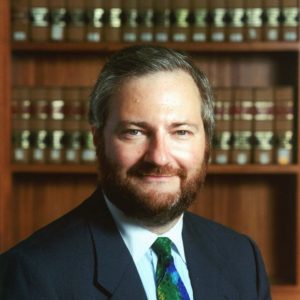CURRENT MONTH (May 2018)
Professional Responsibility
Federal Judge Offers Primer on E-mails and Privilege (Part 2)
By Keith R. Fisher, National Center for State Courts
Part 1 reported on a routine discovery dispute between a food services provider and a university that a federal judge used as a teaching moment by creating 13 hypotheticals to illustrate the applicability of attorney-client privilege to e-mails. The first six were summarized in Part 1; the remaining hypotheticals are covered here.
The judge regarded the following e-mails as privileged (legal advice is sought or provided) and exempt from production: 7. President to General Counsel: “Draft this contract as quickly as possible. Draft a contract including 1, 2, 3 and also 4, 5 and 6.” 8. General Counsel to in-house Paralegal: “The President wants a contract with 1 through 6. Please take language from our prior contract with College Z to get the process started.” 10. General Counsel to VP: “Here is my proposed contract attached to this e-mail. Show this to College X, but tell them it is non-negotiable.” (Note here that the attachment is not privileged.)
But the following are not privileged: 9. VP to Paralegal: “I heard you are working on our contract with College X. Please write these exact words into provision 6: ‘It is hereby agreed that the amount is $400.’” (No legal advice provided, as the paralegal is merely a scrivener.) 11. VP to College X: “Here is our proposed contract. Our General Counsel says since we are giving you such a good deal, we must insist on these terms as written. Please send it back with your signature.” (Not privileged because directed to a third party.)
The final two scenarios are: 12. Emails by non-lawyers within each party, and between Corporation A and College X, following execution of the contract, disputing its interpretation, and at times indicating they rely on their counsel’s advice. (Only privileged if “counsel’s interpretation is repeated in essentially verbatim language in the email. In this event, only the content of the communication with counsel is privileged and may be redacted. The rest of the document must be produced.”) 13. As a result of a dispute on contract interpretation between the parties, VP discusses this with President and then contacts General Counsel about her interpretation of the contract and GC responds. VP forwards this email to College X. (Privileged “only as to the communication with counsel and while confidential within Corporation A. Once sent to College X, it loses its privileged status.”)
India Supreme Court Precludes Practice by Foreign Lawyers, Law Firms
By Keith R. Fisher, National Center for State Courts
In a March 13, 2018 ruling constituting the coda to a long-contested dispute brought by U.S. and U.K. law firms, the Supreme Court of India upheld rulings by the High Courts in Madras (2012) and Bombay (2010) that foreign lawyers and law firms cannot practice law (whether litigation or transactional) in India but can make “casual visits” on a “fly in and fly out” basis to give legal advice on matters involving foreign or international law. Even the “fly in and fly out” basis may amount to unauthorized practice of law if it is on regular basis, but a casual visit for giving advice may not constitute “practice.” Furthermore, foreign lawyers do not have an absolute right to conduct arbitration proceedings for disputes arising out of a contract relating to international commercial arbitration but may conduct such proceedings if either the Rules of Institutional Arbitration apply or the matter is covered by the provisions of the Arbitration Act. Such lawyers will, however, be governed by the code of conduct applicable to the legal profession in India, and the Bar Council of India is “at liberty” to promulgate appropriate rules.
Legal Ethics
Two Recent Decisions on Border Searches of Electronic Devices
By Keith R. Fisher, National Center for State Courts
This past month has seen two decisions in cases considering the constitutionality of border searches of electronic devices, which was the subject of an article discussing the ethical obligations of lawyers and a companion article discussing ethical obligations of judges. The topic was also the subject of a video interview conducted at the Section’s spring meeting in Orlando. On May 9, the federal court in Massachusetts denied in all respects the Government’s motion to dismiss in the Alasaad case, so the constitutional challenges based on the Fourth Amendment and the First Amendment have survived the standing hurdle and will move forward into discovery. Coincidentally, that same day the U.S. Court of Appeals for the Fourth Circuit upheld the denial of a motion to suppress a forensic search of a cell phone owned by a known smuggler of weapons subject to search and seizure at the border. The 4th Circuit held that such a warrantless search of the contents of a mobile phone is not justified as a routine border search and requires individualized suspicion (which was established on the facts of the case).





